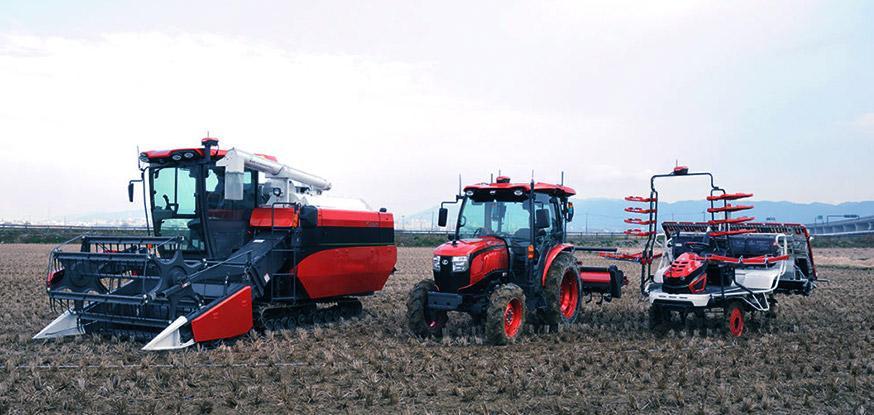A Japanese manufacturer has announced that it is currently conducting tests on 'driverless tractors' it has developed in an effort to combat the issue of ageing within the farming population in Japan. Kubota is currently selling the 'driverless tractors' on a trial basis, but has declared its intention to launch the machines for full-scale in 2018 if the trials are deemed a success.
There has been a shift towards introducing autonomous machinery as a way of solving the ageing crisis within the Japanese agricultural sector, and according to Kubota it is a problem that is reflecting in many other countries across the world.
The driverless tractor developed by Kubota is a 60hp machine which is used for automatic tiling. In addition to the driverless tractor, an autonomous rice trans-planter and 100hp harvester are also being tested by the Japanese manufacturer. Kubota has centered its focus on the development of autonomous technology in a bid to form a stronger link to its Kubota Smart Agriculture System (KSAS) which was specifically created to accelerate the development of all sorts of new revolutionary and innovative farm machinery.
The introduction of the driverless tractor by Kubota is just the latest product launched as part of the firms 'Farm Pilot' machinery range, which includes field mapping and guidance technology GPS (Global Positioning System) in order to improve accuracy and significantly reduce labor costs.
It has been disclosed that the new driverless tractor currently on trial is equipped with sensors that determine and deliver real-time data of the presence of any dangers or obstacles in the tractors path. If the tractor subsequently encounters something, the vehicle automatically stops in order to counter health and safety concerns.
Kubota began selling the autonomous tractor in June, and it has confirmed that both the sales and performance of the product is being monitored closely by the manufacturer. According to reports the driverless tractors are retailing at between (¥9.7 million-¥11million) which is around 50% more expensive than 'conventional' models.
It has also been reported that in an effort to accelerate the development of highly-functional autonomous tractors Kubota has been joined by Japanese machinery companies Iseki and Co and Yanmar who are also working on similar projects.

